Ten years have passed since world-renowned US photographer Spencer Tunick first photographed over 1,200 naked Israelis at the Dead Sea to draw attention to the region’s environmental plight.
Tunick, and the man that brought him to Israel, US-born entrepreneur Ari Leon Fruchter, aimed to raise awareness about the proliferation of Dead Sea sinkholes. The area has continued to suffer as freshwater dissolves underground layers of salt deposits causing the ground above it to collapse. More than 4,000 sinkholes have been identified on the sea’s western shores.
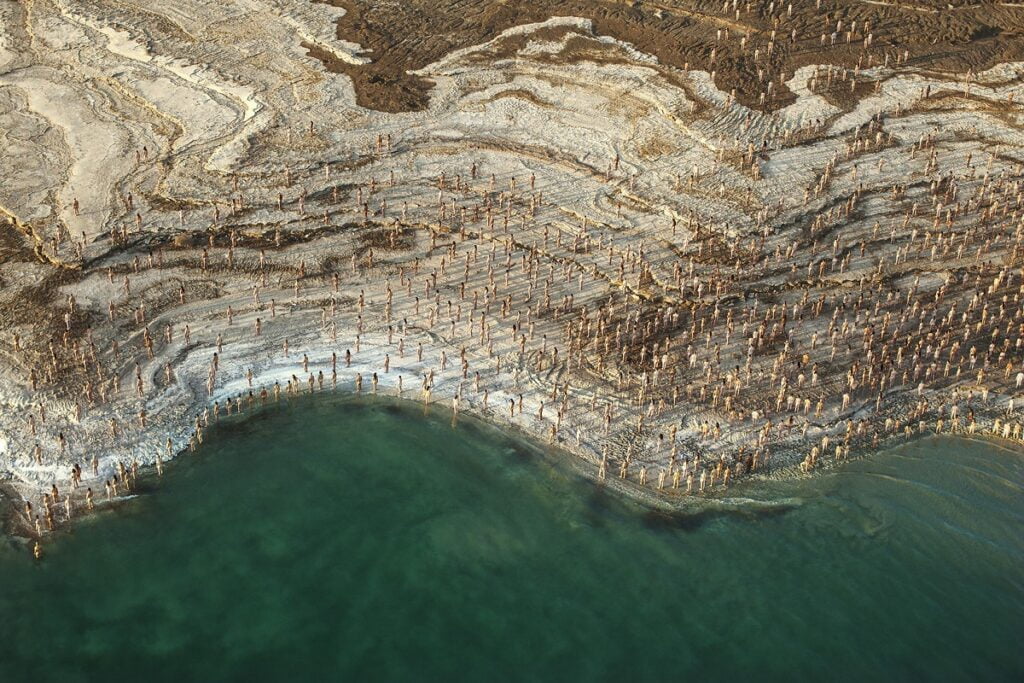
Fruchter tells NoCamels that bringing Tunick to Israel for one of his infamous mass nude photoshoots was an enlightening moment for him, turning him into an “evangelist of the Dead Sea.”
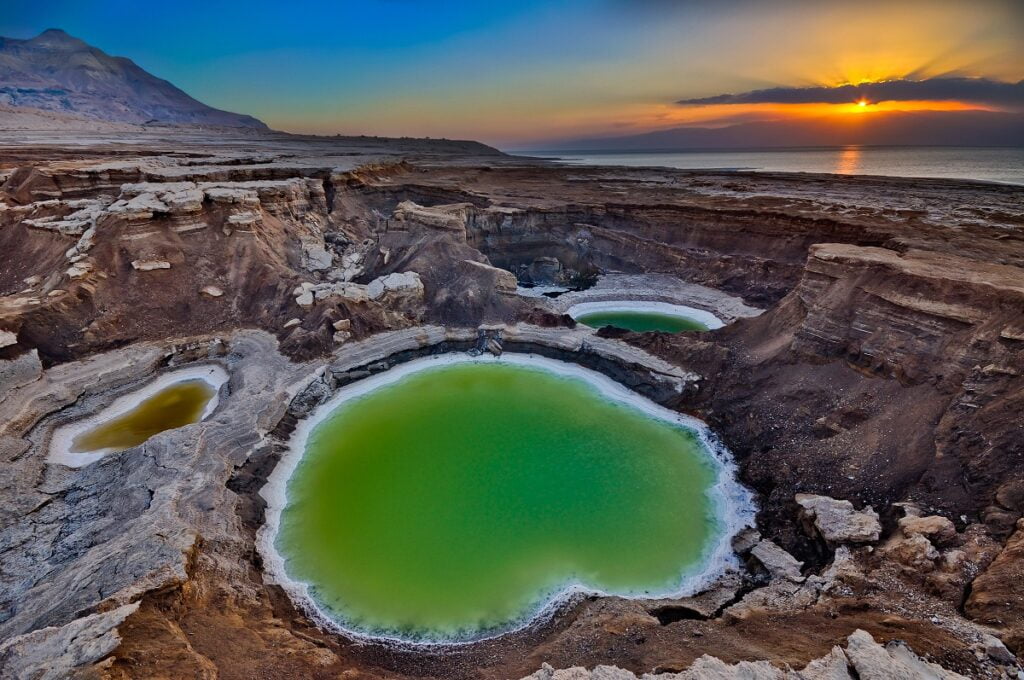
“A couple of years ago, I had this epiphany in my head. I said, ‘I can’t really save the Dead Sea. Yeah, I’m not a doctor, it’s dying. I can’t save it, but I can help preserve it through art,” he says, “Because something dying doesn’t mean it’s dead yet. There’s new life being formed here. It’s still a very, very significant place.”
To further continue this mission and contribute to Israeli society through art activism, Fruchter joined forces with photojournalist Noam Bedein and The Dead Sea Revival Project, an NGO founded by Bedein in 2016 to help rehabilitate the endangered region through art, education, and research.
Last year, the NGO partnered with online photography platform GuruShots to launch the world’s first international photo competition focused on the Dead Sea. The Dead Sea Life photo competition was inaugurated on Earth Day 2020 (April 22) and more than 13,000 photos were submitted by May 21.
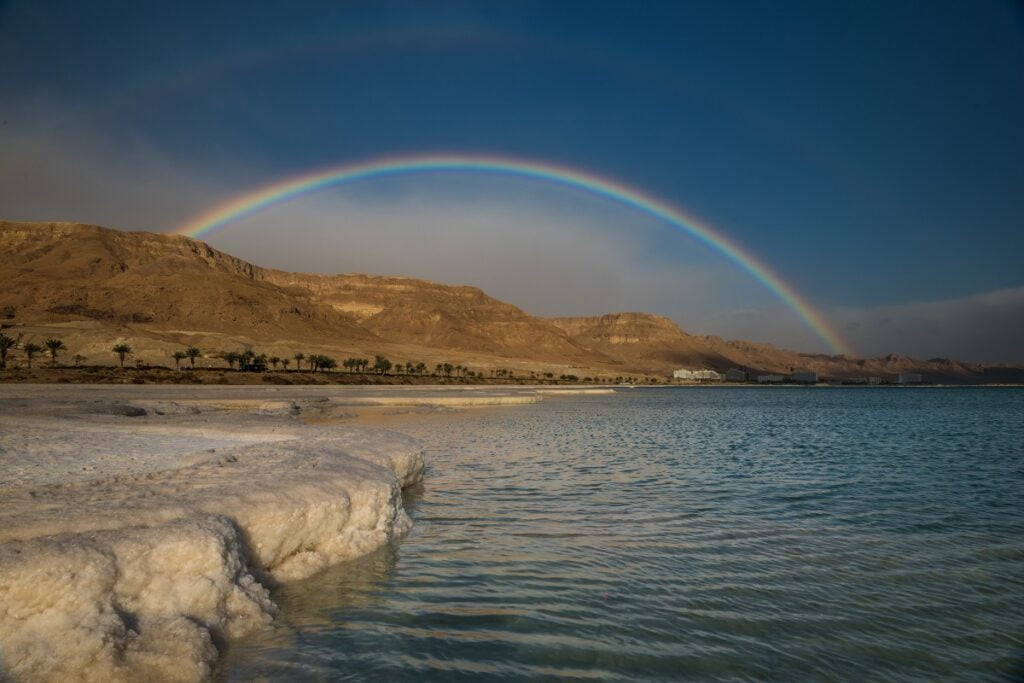
“We had participation from close to 4,000 photographers from 40 countries. I think almost 14,000 photos were submitted,” Fruchter tells NoCamels.
Nearly 9.1 million votes were cast on the GuruShots site for the best photo.
Meanwhile, 40 photographers who entered the competition were selected to take part in an exhibit at the Arad Cultural Center in the southern desert city of Arad, opening on Earth Day – Thursday, April 22 – exactly a year after the photo competition was launched.
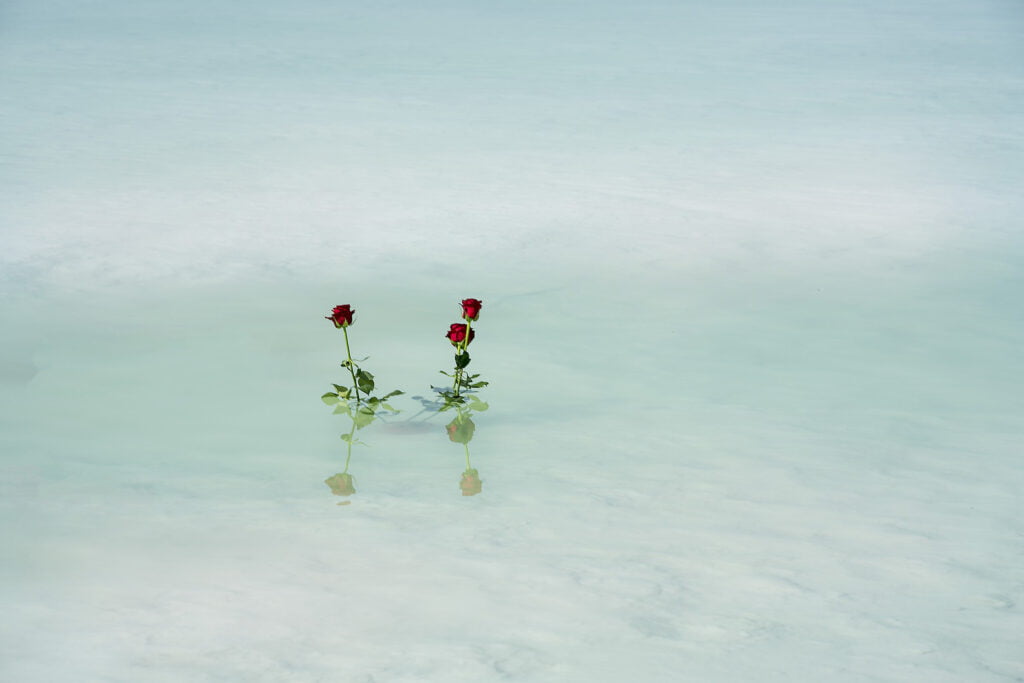
Bedein and Fruchter selected a panel of judges to choose a winning photo from the 40 in the exhibit. The panel included Tunick, NYC-based photographer Casey Kelbaugh, Israeli wildlife photographer Roie Galitz, and curator and art consultant Keren Bar-Gil.
The judges chose a striking photo by Israeli photographer Alexander Bronfer as their winning photo, where a woman covered in Dead Sea mud, save for her piercing eyes, stares at the camera with the sea behind her. Bronfer won a $500 cash prize and a one-week stay for two in a Prima Hotel while attending the exhibit.
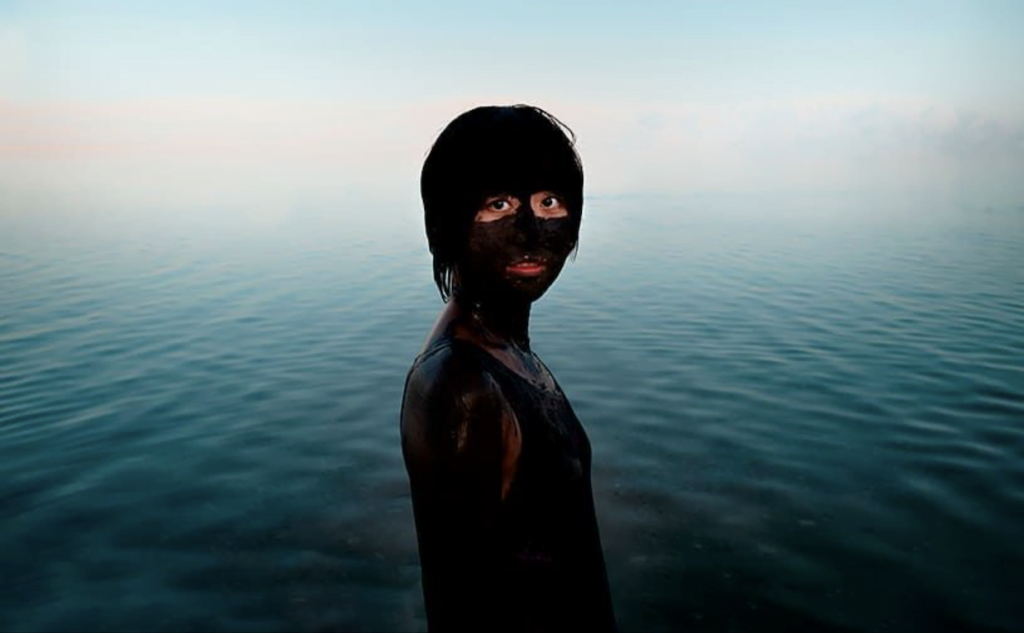
With votes from the audience, GuruShots chose Israel’s Mario Troiani as Top Photographer and the US’ Ronnie Turner for Top Photo, both with stunning photographs showcasing the Dead Sea in various seasons.
“Due to the coronavirus, having a physical exhibition became complicated, but we were very fortunate that the city Arad welcomed the initiative,” says Fruchter.

“We were ecstatic and did not believe in the magnitude of the mass public support we received in the photography competition from around the world,” Fruchter and Bedein said in a statement.
The exhibition is sponsored by the Arad Regional Council, GuruShots, Epson, Picture Perfect, and the Prima Hotels.
Sign up for our free weekly newsletter
SubscribeA new reason to head to Arad
A quiet and picturesque town sandwiched between the Negev and the Judean desert, Arad has always been known for its clean air, and as the place renowned Israeli author Amos Oz called home from 1986 until his death in 2018.
But while Arad is just 16 miles west of the Dead Sea, fewer people have made the city one of their stops on the way.
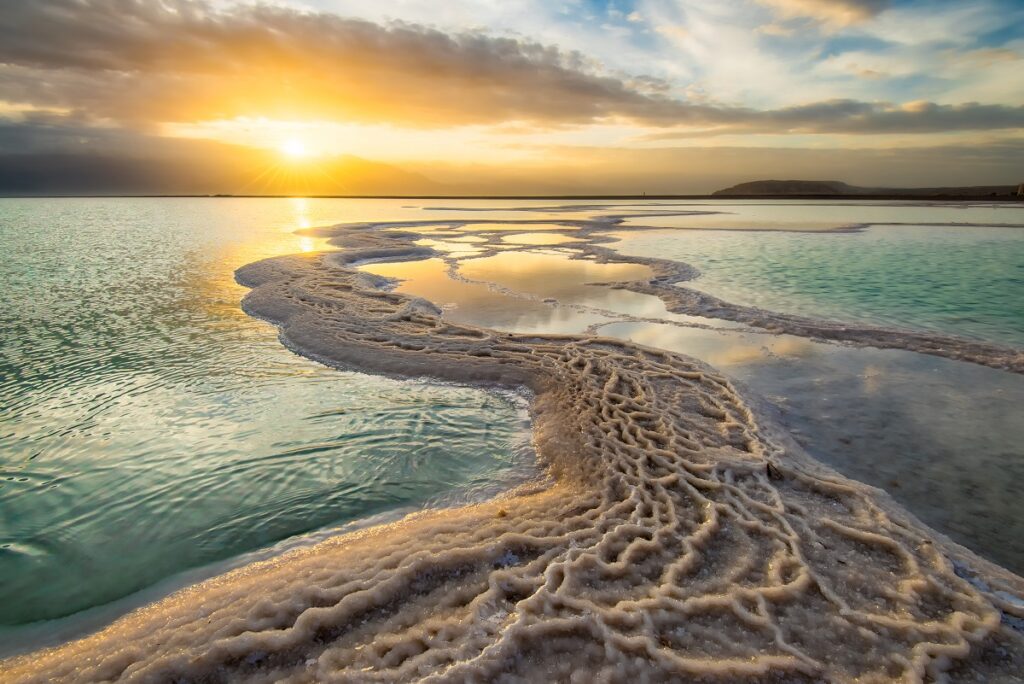
Living in Arad was a formative experience for Fruchter, who made his home there as part of the WUJS (World Union of Jewish Students) program in 1997. The city was so meaningful to him that Fruchter and his family moved to Israel some ten years later, in 2007. His firstborn son is fittingly named Arad.
In 2019, as part of his quest to both preserve the Dead Sea and give back to the city that had made such an impact on his life, Fruchter set out to build a Dead Sea Museum in Arad.
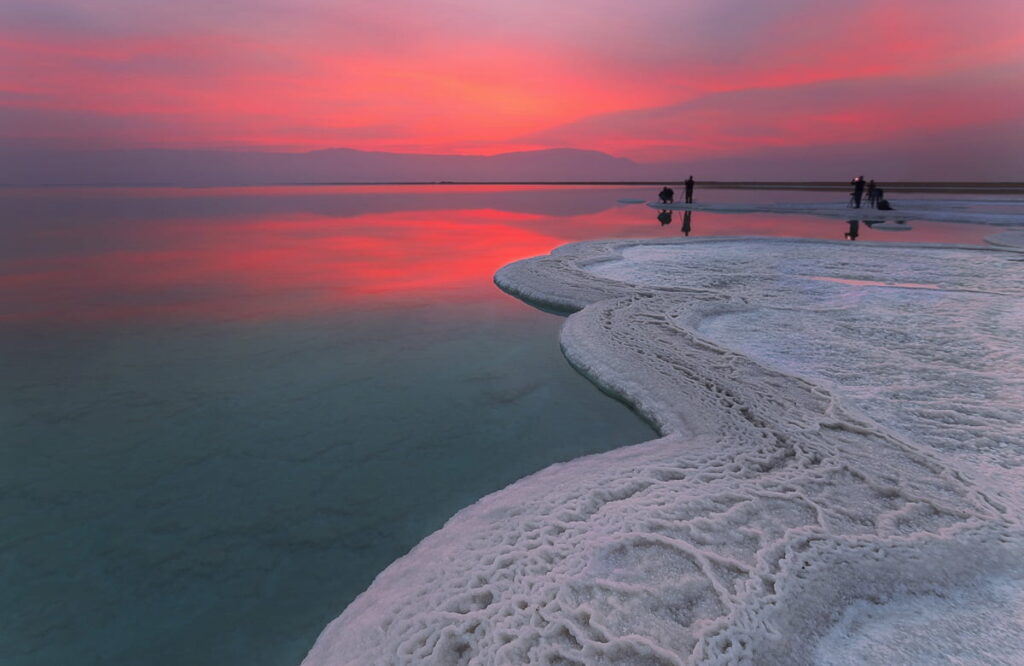
“We’re trying to rebrand the city as a gateway to the Dead Sea,” he tells NoCamels, noting plans to build the physical museum close to the concrete-and-steel “Panorama” monument in the city by Israeli artist Igael Tumarkin located at the Moav Outlook.
“Something of this nature would completely transform the city, both economically and in terms of demographics,” he adds.
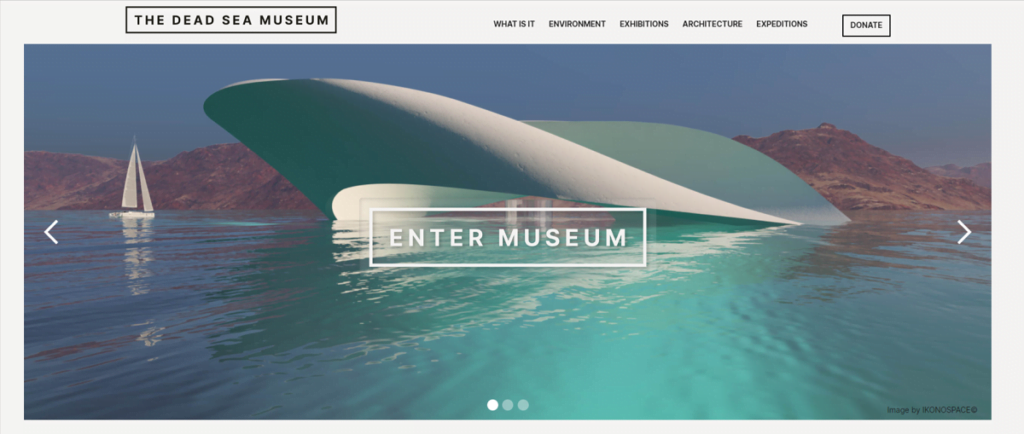
Three renditions of what the museum could look like can be found on the official website. One idea is to make it an international project floating in the Dead Sea. This means that anyone from Israel, Jordan, or the Palestinian Authority must travel an equal distance to get to it, Fruchter explains.
The Dead Sea Revival Project is currently working with government officials and architects — including Neuman Havner Architects, an Israeli firm that has already designed a building for the museum — to plan the project, but visitors can access it virtually to view the exhibit for free in a virtual, 3D-guided tour.
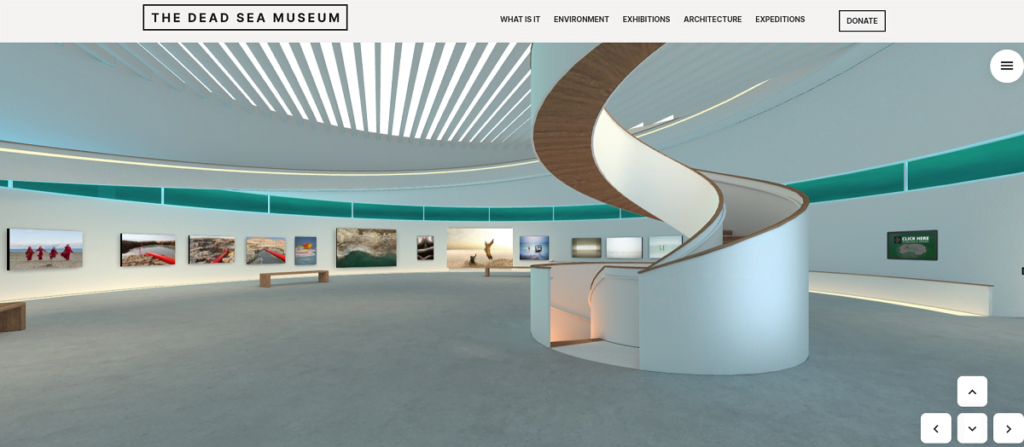
“We plan to have more exhibitions, but the idea is that the Dead Sea is so known around the world that very, very few people, even in non-coronavirus days have the actual opportunity to come here and visit it. So why not give them this actual opportunity to see it online? Then hopefully, one day when they come here we’ll have the physical museum they could actually visit,” Fruchter says.
SEE ALSO: 6 Natural Wonders You Need To Go And See In Israel In 2021
The photography exhibit opens on Thursday and will remain open until next year
“The Dead Sea Life Exhibition which we will be hosting for a year, presents an opportunity to invite all people traveling to the Dead Sea to stop in Arad and enjoy some culture,” said Nisan Ben Hamo, mayor of Arad.
“Arad is the natural gateway to the Dead Sea and we are honored to host this international exhibition,” added Ben Hamo.
Related posts

Rehabilitation Nation: Israeli Innovation On Road To Healing

Israeli High-Tech Sector 'Still Good' Despite Year Of War




Facebook comments